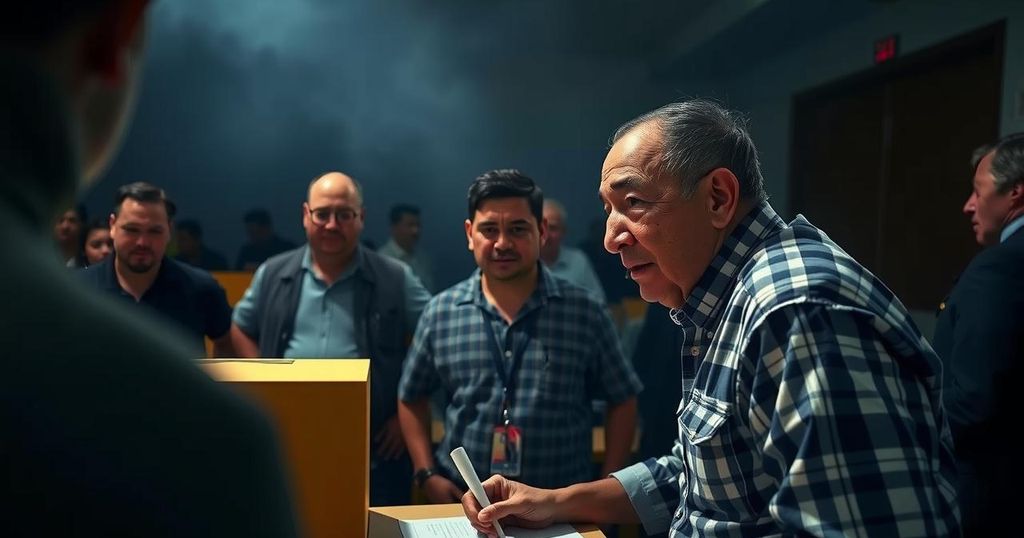Uruguay Prepares for Tight Presidential Race Between Orsi and Delgado

Voters in Uruguay prepare for a closely contested presidential election on Sunday, featuring center-left candidate Yamandu Orsi and conservative Alvaro Delgado. Polls indicate a narrow race, with significant implications for governance in the absence of an absolute majority. The political climate reflects a less polarized environment compared to other South American nations, with economic stability influencing voter preferences.
On Sunday, voters in Uruguay will participate in a crucial second-round presidential election, featuring a matchup between center-left candidate Yamandu Orsi and conservative contender Alvaro Delgado. The election, which follows a highly competitive year of politics in the region, is expected to be intensely close, with polls indicating that a mere 25,000 votes may separate the two candidates. Unlike other countries in South America, Uruguay presents a more congenial political landscape, characterized by overlaps between conservative and liberal factions.
The electoral process, which will commence at 8 a.m. local time and conclude at 7:30 p.m., is viewed as critical as both candidates vie for voter support. Mr. Orsi, representing the Broad Front, won 43.9% of the initial round of voting, whereas Mr. Delgado, backed by the Colorado Party, accumulated 26.8% of the votes in that first round. Key to their campaigns is the need to attract the support of approximately 8% of voters who opted for smaller, independent parties.
As both candidates strive to consolidate their positions, Mr. Orsi has vowed to maintain a moderate approach to governance, while Mr. Delgado seeks to build on the popular support enjoyed by the incumbent president, Lacalle Pou, who is ineligible for re-election. The outcome may have far-reaching implications, as neither coalition holds an absolute majority, with Mr. Orsi’s party securing 16 out of 30 Senate seats, potentially granting him an edge in legislative negotiations. Analysts note that the current economic stability may mitigate voters’ desire for significant political shifts, despite broader global trends of dissatisfaction with incumbents.
Uruguay, with a population of 3.4 million, is known for its relative political stability compared to its South American neighbors. The current election follows a year marked by widespread electoral competitions across the region, characterized by sharp political divides in countries like Argentina and Brazil. In contrast, Uruguay presents a less polarized environment, fostering significant overlap between political factions, making the electoral outcome less foreboding. As economic conditions fluctuate globally, the Uruguayan context reflects local priorities of moderate governance and economic resilience, impacting voter sentiment heading into the election.
The upcoming presidential election in Uruguay is poised to be a closely contested affair between Yamandu Orsi and Alvaro Delgado. With only a slim margin separating the candidates, the election reflects a political landscape that is significantly more congenial than that of its neighboring countries. The election is crucial, not only for the future governance of Uruguay but also for understanding how local and global economic conditions influence voter behavior and party performance.
Original Source: www.ndtv.com







